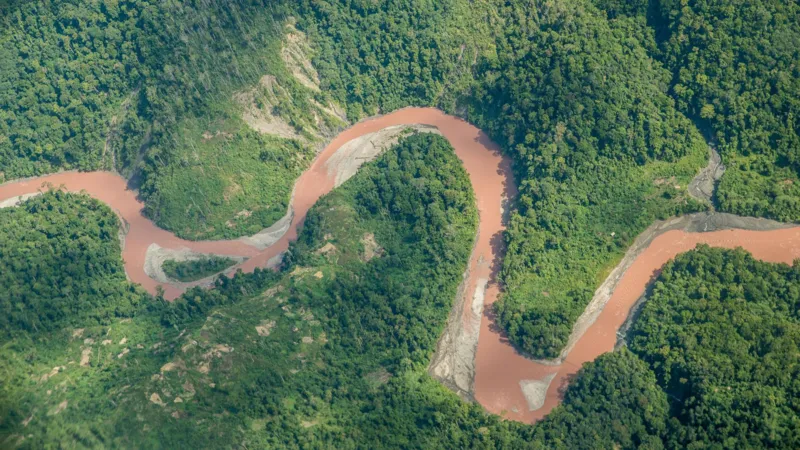Outline of the New Shootouts
The new shootouts in Papua New Guinea mark a critical heightening in between ancestral viciousness, bringing about the unfortunate passings of no less than 30 people. This spate of savagery, which happened over a brief yet extreme period, has caused to notice the fundamental strains that exist inside different ancestral gatherings in the district. The underlying episodes unfurled in the High countries locale, where rival clans conflicted over longstanding complaints. Reports show that this savagery was not a disconnected occasion yet rather the zenith of long periods of unsettled clashes established in verifiable arguments about land and assets.
Occasions started heightening toward the beginning of October when pressures rose following allegations of steers robbery. Resulting retaliatory goes after quickly unfurled, prompting a progression of fierce showdowns between the clans in question. Nearby specialists, at first wrecked, answered with restricted assets, bringing about a sluggish organization of policing the impacted regions. This postpone allowed the brutality to pick up speed, with reports of extra shootouts happening in various districts, including Hela and Enga regions, which are known for their ancestral affiliations and past contentions.
Fundamental examinations have planned to evaluate what is happening and decide the triggers of these fierce episodes. Nearby police have shown that authentic hatreds and rivalry for scant assets altogether add to the patterns of viciousness. Also, the absence of compelling compromise instruments intensifies these ancestral threats, propagating patterns of vengeance and reprisal. As examinations proceed, it is indispensable to perceive the perplexing social texture of Papua New Guinea, where ancestral personality assumes a critical part. This setting is fundamental for figuring out the new shootouts and their suggestions for the future security of the district.
Hidden Reasons for Ancestral Clash
Ancestral struggles in Papua New Guinea can be credited to a heap of basic causes, with land debates frequently remaining at the very front. The meaning of land in the locale couldn’t possibly be more significant, as it is characteristically connected to the personality, culture, and occupations of specific clans. Clashes emerge when proprietorship and utilization of these grounds are challenged, frequently prompting savage showdowns between rival gatherings. These land questions are exacerbated by contending interests over regular assets, like minerals, timberlands, and water sources, which are fundamental for both food and financial development.
Notwithstanding area and asset contest, social contrasts assume an essential part in cultivating ancestral strains. Papua New Guinea is home to various clans, each with unmistakable traditions, values, and conviction frameworks. Errors and clashes much of the time emerge from social false impressions, prompting an absence of coordinated effort and collaboration among various ancestral gatherings. As clans endeavor to safeguard their novel social personalities, the potential for struggle increments, particularly during snapshots of social change or monetary strain.
In addition, the authentic setting of social pecking orders inside these clans can’t be ignored. Customary power structures frequently direct local area communications, with specific tribes or families employing huge impact over others. These pecking orders can make uneven characters that fuel disdain and contentions, preparing for clashes to eject. Outer impacts likewise add to the acceleration of ancestral viciousness; government approaches that neglect to perceive ancestral freedoms or socially delicate practices can prompt further discontent. Financial abberations, exacerbated by modernization and globalization, prompt rivalry as opposed to joint effort, making customary ancestral designs disintegrate and turn out to be more vulnerable to struggle.
Together, these elements make an intricate scene of ancestral savagery, where verifiable points of reference and contemporary difficulties interlace, requiring a more profound assessment to address the main drivers successfully.
Outcomes of the Viciousness
The new ancestral shootouts in Papua New Guinea have brought about significant ramifications for neighborhood networks, profoundly influencing their social texture and administration structures. Chief among these outcomes is the awful death toll. The fatalities across different ancestral groups have left families deprived as well as made a critical bereft of conventional initiative and information that is hard to supplant. The certainty of passings during these fierce experiences brings up issues encompassing the fate of these clans and their ability to support social practices.
Notwithstanding the death toll, the removal of families has become alarmingly common, with incalculable people compelled to forsake their homes and resided encounters because of dread of additional contention. Uprooting frequently prompts expanded weakness, as impacted families might need admittance to fundamental necessities like safe house, food, and clinical consideration. As they get comfortable transitory safe zones or in adjoining networks, their reconciliation and acknowledgment can present difficulties, prompting a stress on nearby assets and social pressures.
Moreover, overcomers of ancestral viciousness regularly experience mental injury that can enduringly affect their personal satisfaction. This injury might appear as post-awful pressure issue (PTSD), nervousness, or misery, introducing further difficulties to local area recuperation. Tending to psychological wellness concerns frequently requires assets and expert help that neighborhood networks might not approach, worsening the issue.
The interruption of social attachment fills in as one more critical outcome of these shootouts. Trust inside and among clans decreases, and common bonds debilitate, burying the hatchet and recuperation progressively troublesome. Nearby administration and policing seriously tried as specialists battle to keep up with public security right after savagery. The test for the public authority lies in executing viable systems to reestablish request and cultivate exchange among clashing ancestral gatherings. Without such measures, the gamble of future brutality looms, propagating a pattern of distress that undermines the security of the whole locale.
Pathways to Compromise and Peacebuilding
In tending to the intricacies of ancestral viciousness in Papua New Guinea, it is fundamental to investigate powerful pathways to compromise and peacebuilding. Nearby pioneers, non-legislative associations (NGOs), and government bodies all assume a vital part in advancing exchange and encouraging common comprehension among clans. These partners can start local area gatherings that energize open discourse, permitting clans to communicate complaints and examine possible answers for hidden issues. Intervention endeavors worked with by regarded local area individuals can likewise assist with connecting holes between clashing gatherings, empowering a more comprehensive way to deal with compromise.
Local area based approaches are especially fundamental with regards to mending divisions exacerbated by brutality. Programs zeroed in on schooling can act as an impetus for change, outfitting people with the vital abilities to helpfully explore clashes. Instructive drives that consolidate conventional compromise techniques, close by current methodologies, can engage networks to actually oversee debates more. Besides, the advancement of youth programs pointed toward cultivating serene concurrence among youthful individuals from various clans can help in breaking the pattern of savagery.
Supportable improvement drives likewise assume a huge part in struggle counteraction. By tending to the financial incongruities that frequently fuel ancestral pressures, state run administrations and NGOs can establish a climate more helpful for harmony. For example, effective contextual investigations, for example, local area driven monetary tasks have shown the possibility to join clans through shared objectives, in this manner encouraging a feeling of coordinated effort over rivalry. These drives feature the significance of putting resources into long haul arrangements that reduce prompt strains as well as work towards a steady, tranquil future for all clans included.
All in all, laying out powerful pathways to compromise and peacebuilding in Papua New Guinea requires a joined exertion from nearby pioneers, NGOs, and government elements. By focusing on discourse, schooling, local area inclusion, and manageable turn of events, it is feasible to moderate further viciousness and support an agreeable conjunction among the different clans of the district.

